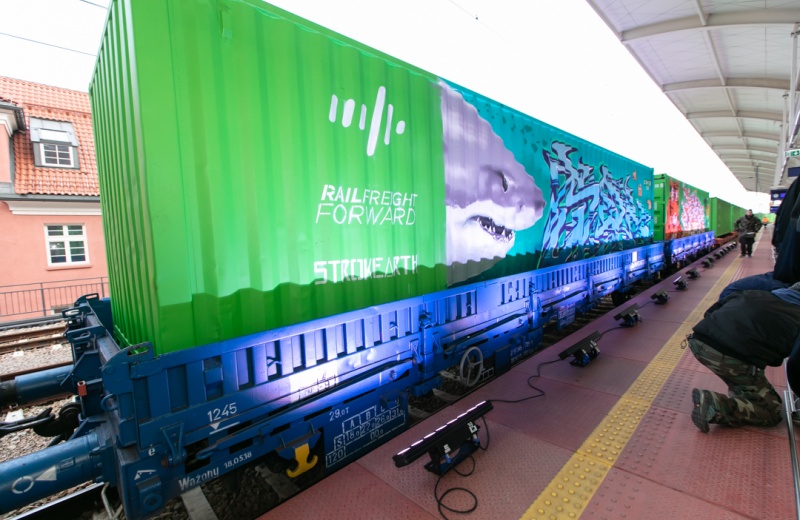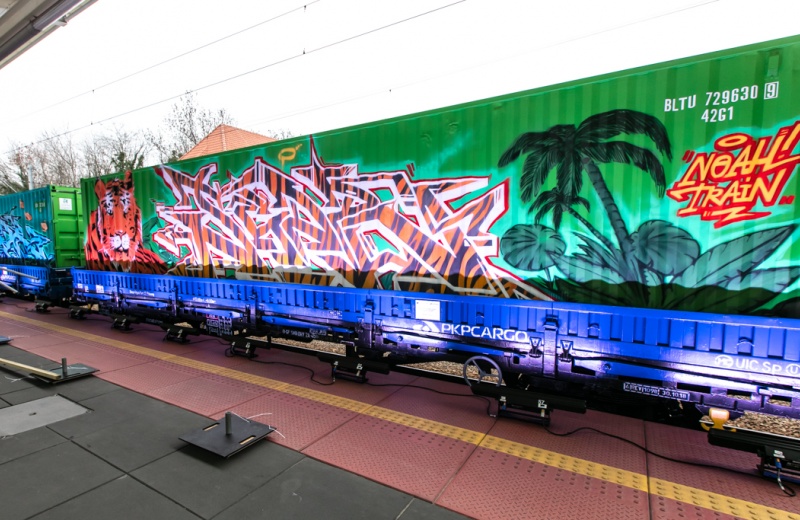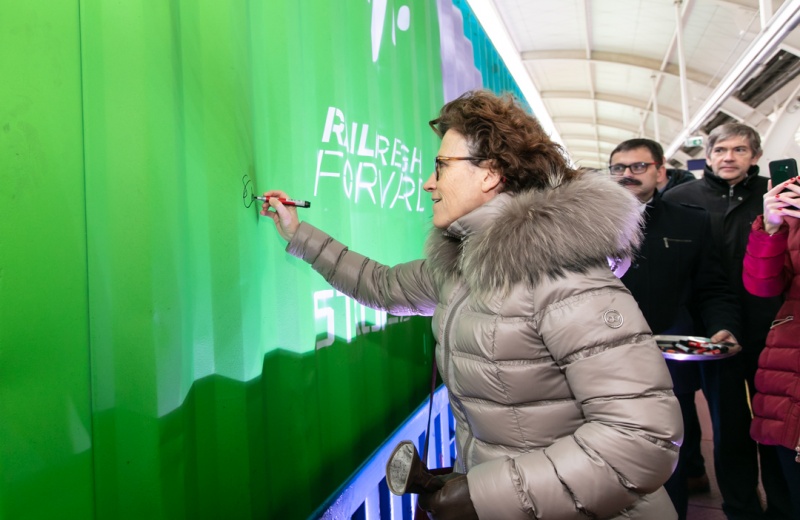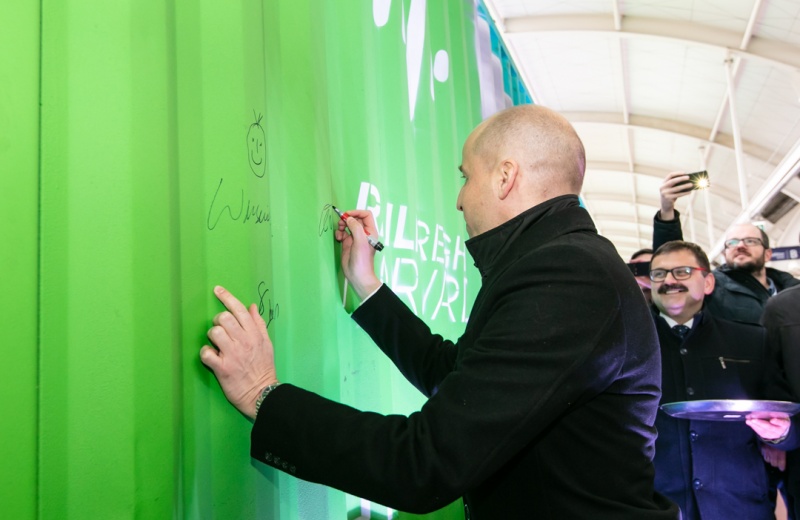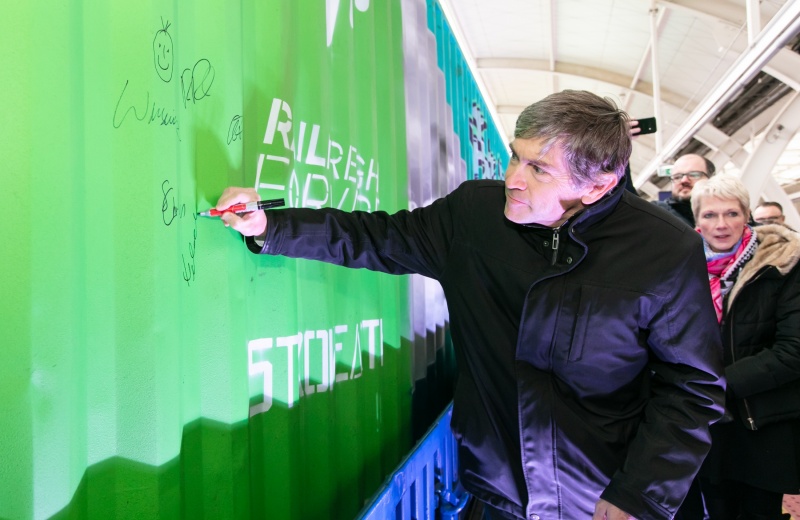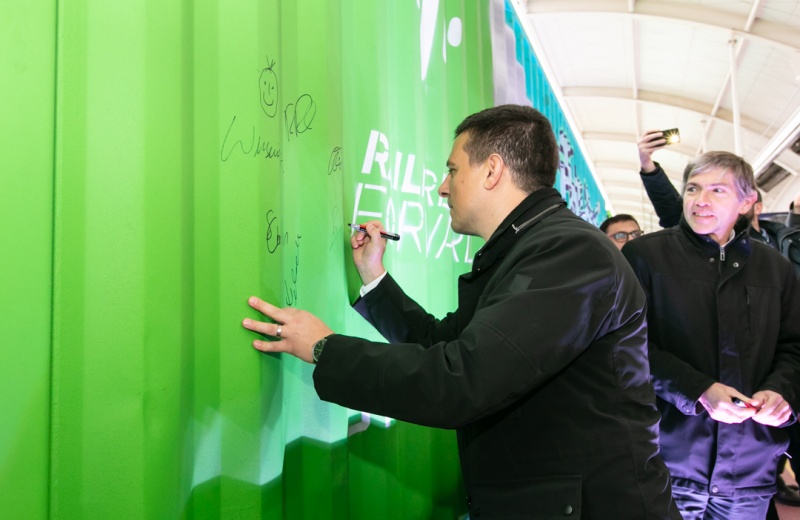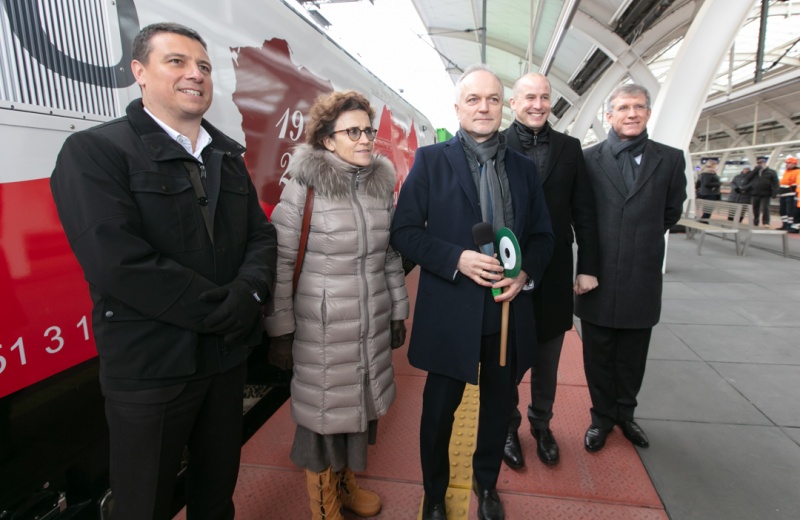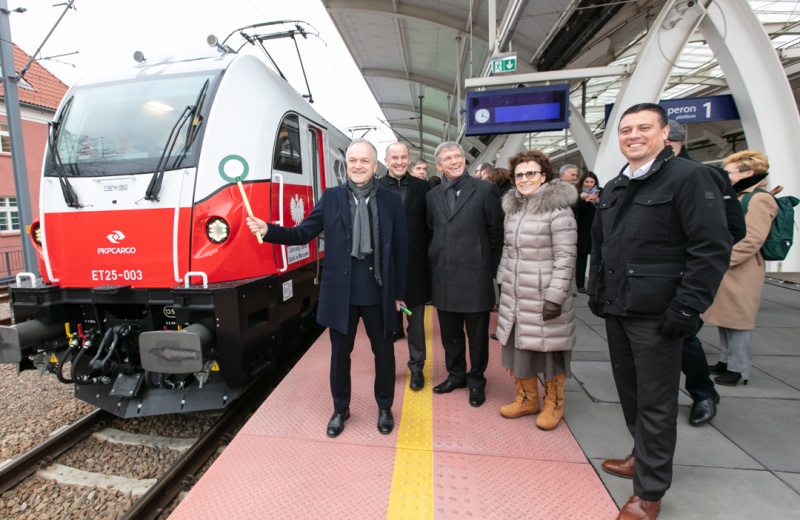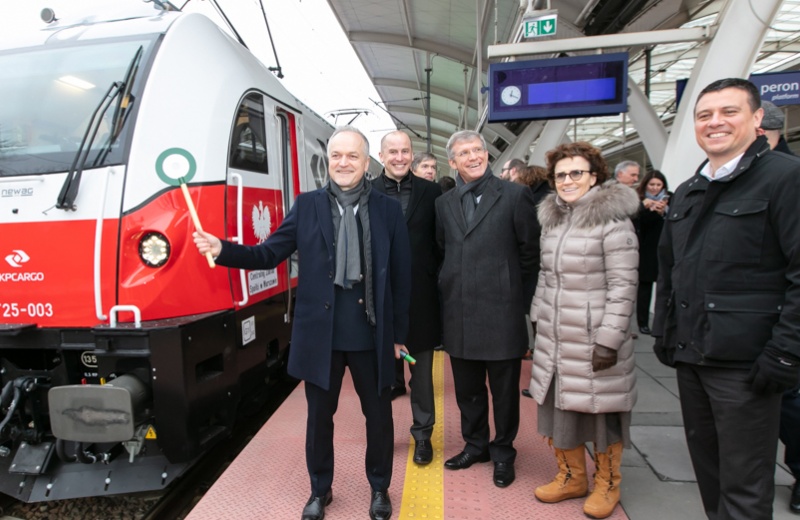At the Katowice climate conference today, Rail Freight Forward, a coalition of rail freight companies and federations from across Europe, committed to help save up to 290 million tons of C02 transport emissions over the next decade.
With 275 million tons of C02 emissions a year, freight transport represents almost a third of total transport emissions, passenger transport included. At an estimated growth rate of 30% by 2030, the climate impact of freight transport is expected to increase substantially over the coming years.
To avoid this increase, Rail Freight Forward aims to boost the share of rail in overall freight transport from 18% to 30% by 2030. With rail freight emitting 9 times less CO2 than road freight, this modal shift from road to rail is a crucial step to help the transport industry reach its climate targets as defined in the Paris Accord.
The signatories committed to transforming their sector and offering innovative and highly competitive rail products, while urging policymakers and partners to create the necessary external conditions to enable a modal shift from road to rail freight.
European rail freight coalition launches urgent call to step up efforts
While participants from around the globe discuss the urgent actions needed to accelerate efforts against climate change, the coalition outlines the clear ambition of the European rail freight industry to step up its efforts and become a key contributor to a more climate-friendly freight sector. With rail freight emitting 9 times less C02 and causing 8 times less air pollution than road freight, the coalition urges policymakers to recognize and act on its potential to help realize the Paris Climate Accord targets.
Freight transport: a key economic activity with a major climate footprint
Freight transport accounts for 6% of European GDP, with over 19 billion tons of goods being transported every year. While the contribution of the whole sector to the economy is positive, it has a substantial impact on the environment. With currently 75% of all freight transport done by road, the sector has an estimated yearly emission of 275 million tons of C02. This represents 30% of total transport emissions (i.e. all freight and passenger transport).
30% growth of freight transport by 2030 will come at a huge cost
By 2030, freight transport is expected to grow by 30%. That is roughly the size of the entire German freight transport market or 1 million trucks added on European roads in the coming decade. Looking at the stringent goals of the Paris Accord for the transport sector, it is simply not a sustainable option to keep relying heavily on road freight.
A modal shift for a more sustainable future: rail freight companies commit to an ambitious modal share of 30%
Today’s signatories of Rail Freight Forward are convinced that rail has a crucial role to play in building a more sustainable freight sector, that will help Europe realize its climate ambitions. An increase of the modal share of rail freight from currently 18% to 30% by 2030 can largely absorb the expected growth in freight transport and minimize its climate impact.
The 30% target is ambitious, but the European rail freight sector is determined to deliver the sustained efforts needed to achieve it. The members of Rail Freight Forward are committed to work together to transform and modernize the rail freight industry, by driving efficiency and standardization, improving cost-effectiveness and accelerating technological innovation. Each company will step up its efforts to offer competitive products that convince customers to choose rail for its quality, frequency, reliability, flexibility, price and service.
Calling on all stakeholders to enable modal shift to rail
At the same time, Rail Freight Forward calls upon policymakers and key stakeholders to work together in implementing the external conditions needed for a successful modal shift.
Firstly, the development of a competitive rail offering goes hand in hand with that of a rail infrastructure which makes running a train through Europe as easy as running a truck. This requires a clear mandate for infrastructure managers to deploy a network that is easy to access, well-managed and reliable.
Secondly, national and EU authorities are called upon to provide a transparent and solid regulatory framework for infrastructure managers to realize this network. The coalition further asks that the authorities equalize taxes, administrative costs, infrastructure access charges… for the different modes of transport, thereby levelling the playing field for trains and trucks.
Countries taking measures to provide a clear regulatory framework and fair competition, such as Austria (32%) and Switzerland (37%), clearly show a larger modal share of rail.
Noah’s Train: raising awareness for a common goal
To mark their climate commitment and win hearts and minds in support of the modal shift, the members of the Rail Freight Forward coalition have chosen Katowice to officially launch Noah’s Train. This train will travel through Vienna (14/1), Berlin (24/1), Paris (5/2) and Brussels (20/2). In each city, prominent local street artists will gradually transform the train into the world’s longest mobile artwork, inspired by the oldest tale of environmental activism.
